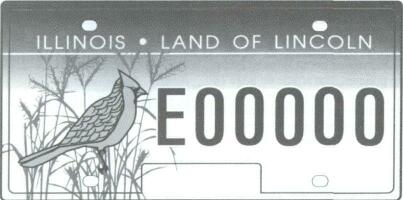 |
Home | Search | Browse | About IPO | Staff | Links |
 |
Home | Search | Browse | About IPO | Staff | Links |
|
Innovations Taking care of the land

Over a million more registered vehicle owners The environmental license plate just celebrated its first anniversary. It has proven to be so popular that the legislature is considering a bill this spring that will allow owners of recreational vehicles and most pickup trucks and vans to buy the plates. That's a potential market of 1.2 million additional vehicle owners, many of whom asked the secretary of state's office to push for the legislative changes that would include them. The sale of the plates has been a fund-raising effort for the Department of Conservation. For every set of plates sold, $25 of the $88 cost for passenger cars ($75 for renewal) goes into a fund dedicated to making improvements in Illinois' state parks. In the first year almost 27,000 sets of the cardinal and prairie grass license plates were sold. That adds nearly $675,000 to the state park fund to be spent on special projects, such as hiring more people for trail renovation and site interpretation. The new legislation would also dedicate $25 from the sale of each set of plates to the state park fund for "enhancement" projects.
Clean sweep: Getting rid of old pesticides When the Mississippi River flooded in 1993, many pesticide containers sitting in barns and sheds were under water. Some lost their labels; others leaked. In early June, the Illinois Department of Agriculture will collect unusable pesticides from residents of 14 Illinois counties declared disaster areas at the time of the flood. The goal is to pick up compounds that are no longer registered for use in Illinois, or that cannot be identified, before they contaminate soil and groundwater. The counties where residents are eligible to participate are Adams, Boone, Cass, Hancock, Henry, Jo Daviess, Knox, Madison, Massac, McHenry, Morgan, Pope, St. Clair and Stephenson. People with pesticides that are usable but unwanted may swap them for products other licensed applicators have but no longer need. Local coordinators, which generally include agri-chemical dealers and representatives from such groups as the county Cooperative Extension Service, Farm Bureau and soil and water conservation district, will administer the swap program. The program began with nine counties last November and December. More than 100 people brought more than 23,000 pounds of old pesticides for collection and safe disposal. In another move to help farmers control pollution, the state agriculture department recycles pesticide containers. Last year Illinois farmers recycled 128,000 pesticide containers, more than double the 57,000 recycled the year before.
Beverley Scobell
C-FAR: Looking to the future of Illinois agriculture Illinois ranks among the top five states in the nation in gross agricultural production. But Illinois cannot boast similar numbers for support of food and agricultural research. In that category Illinois ranks 22nd in overall funding and 29th in state support for research.
People in the food production chain have joined forces to create the Illinois Council on Food and Agricultural Research to push for a state commitment on research to match production levels. The 29 members include farmers' groups, environmentalists and consumer representatives, as well as grain and animal producers. According to C-FAR members, this alliance, the first of its kind, will press for more state money for "relevant and high-quality" research to keep Illinois in the forefront of meeting the demand for environmentally sound, consumer-sensitive food production. A first step in the organization's lobbying efforts is a bill before the legislature sponsored by Bloomington Republican Sen. John Maitland. The legislation would add $15 million to ag and food research to be funneled through four research universities: University of Illinois, Western Illinois University, Illinois State University and Southern Illinois University. A provision in the bill would set aside 10 percent of the allocated funds for competitive grants to be awarded to researchers outside the four universities. Christine Rich of the Illinois Stewardship Alliance says the competitive grants might allow an individual farmer with a good idea to pursue the research and test it on his own farm without having to wait for his proposal to make its way through a university system. 4/May 1995/Illinois Issues |
|
|